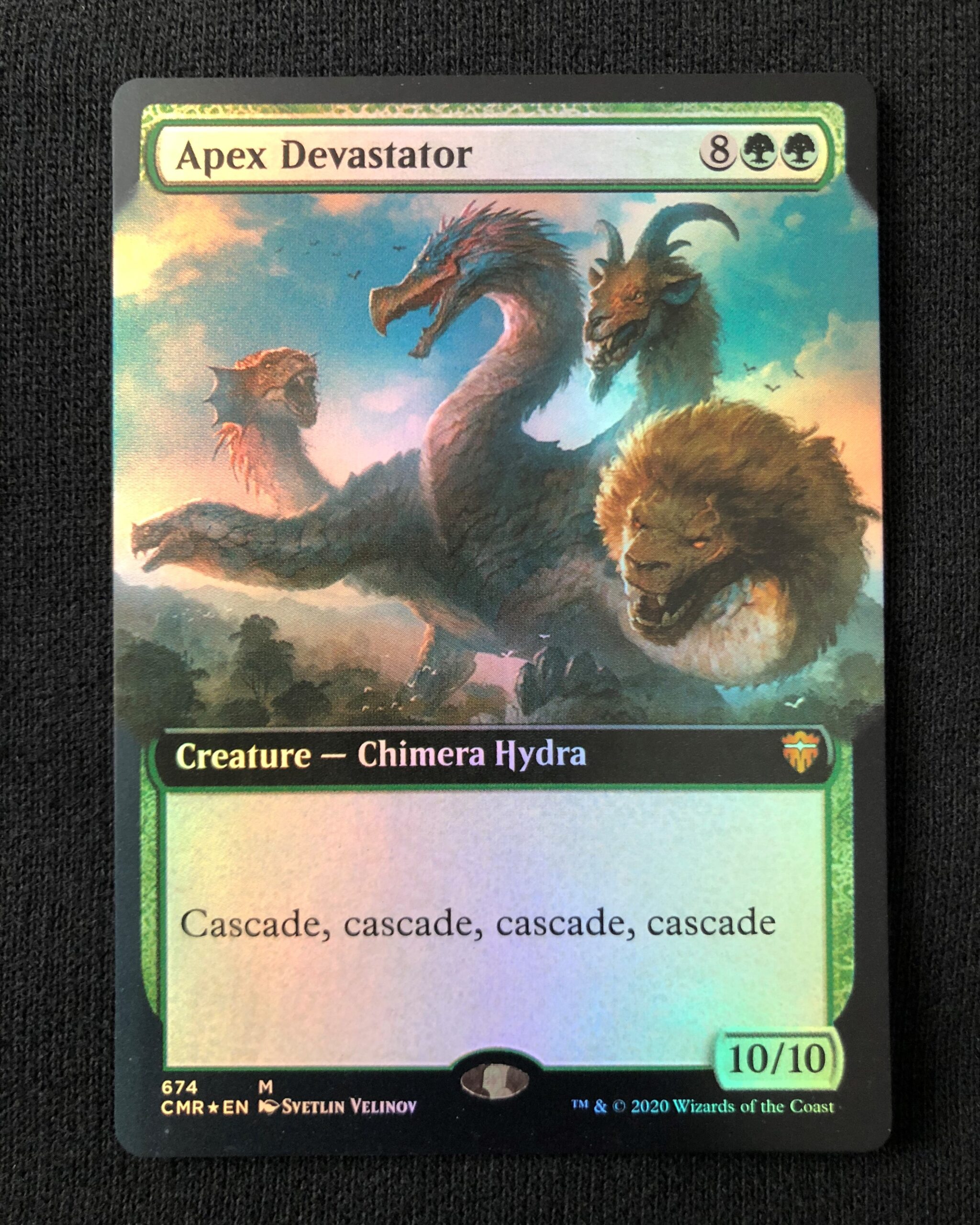**What it does (plain English)**
Apex Devastator is a colossal green finisher with **four separate instances of cascade**. When you cast it, you’ll exile cards from the top of your library until you hit a cheaper nonland card; you may cast that for free—then you do the same thing three more times. Each cascade is its own trigger, so you can stack and resolve them one at a time.
**How it plays**
This card turns the stack into a fireworks show. You cast Devastator; the first cascade trigger resolves, you reveal and cast a spell, that spell resolves, then you move to the next cascade trigger, and so on. If any of those free spells also have cascade (think Maelstrom Wanderer, The First Sliver shells, or Imoti decks that grant cascade to high‑MV spells), the chain can branch even further. The key is **density**: the more impactful hits at mana values 0–9 you pack, the more likely each cascade flips something meaningful instead of a small cantrip. Topdeck manipulation (Brainstorm, Scroll Rack, Sylvan Library, Soothsaying) and library control (Adventure/Modal DFC awareness, split cards) massively increase the quality of your cascades.
**Roles & best use cases**
– **Cascade tribal / Temur/5‑Color:** Partners with **Maelstrom Wanderer**, **Averna, the Chaos Bloom**, and **Yidris** shells that reward casting from exile or care about spell chains.
– **Big‑mana ramp (Commander):** When you have 10+ mana reliably, Devastator converts it into board, cards, and removal in a single action.
– **Token/ETB payoffs:** Every free spell can trigger parallel engines (Beast Whisperer, Guardian Project, Terror of the Peaks, Impact Tremors) for lethal turns.
**Sequencing & stack management**
Remember that each cascade gives a **“may cast”**—you can decline a piece that would be awkward on the stack. Resolve cascades in the order that best plays around counters or removal; sometimes you want to find interaction first before committing your haymaker. X in mana costs is 0 when cast for free, and you can’t choose alternate costs, though you can pay additional costs if required.
**Formats & popularity**
Legal in eternal formats and a **Commander** crowd‑pleaser. Devastator is less common in competitive Modern/Pioneer but shines in battlecruiser tables and cascade‑themed cubes.
**Proxy note**
Third‑party proxy for casual play/testing. Not tournament legal. Not affiliated with Wizards of the Coast.




Reviews
There are no reviews yet.